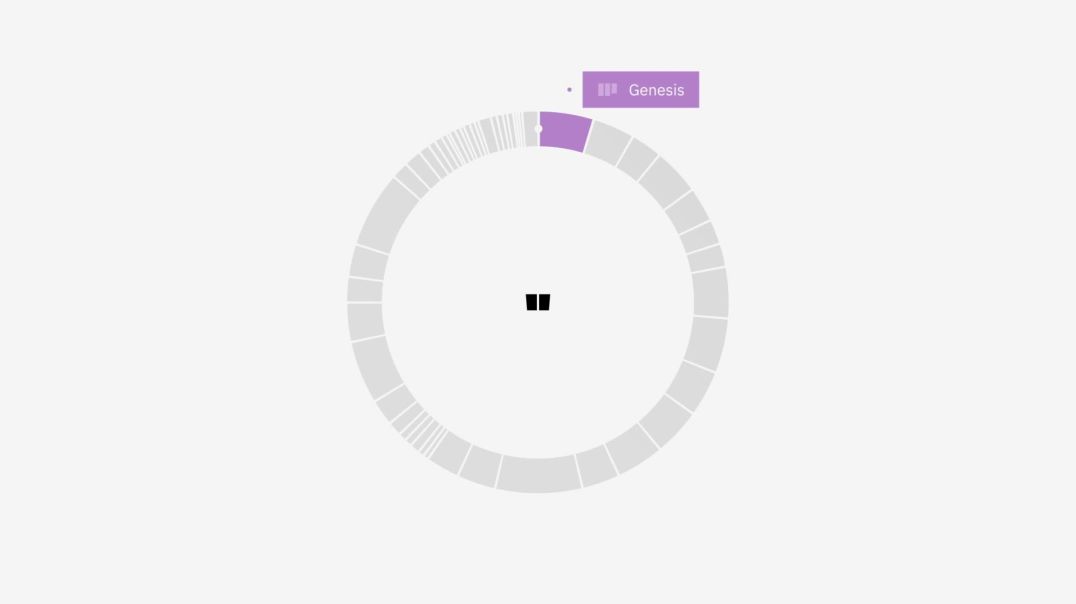Introduction
One of the most profound and difficult questions that humanity has asked is: why does Christianity believe that God allows us to suffer? In a world filled with pain, hardship, loss and tragedy, the idea of a loving, all-powerful God permitting suffering can feel impossible to reconcile. This article explores that question from a Christian theological perspective, reflecting on suffering, its roots, its purposes, and how believers can respond in faith and hope.
Suffering: the reality
Suffering, in its many forms — physical pain, emotional anguish, injustice, loss of a loved one, chronic illness, or sudden disaster — is an unavoidable part of the human experience. The fact that evil and suffering exist poses what is classically called the problem of evil: if God is good, all-powerful and all-knowing, why does suffering exist at all? Many have wrestled with this: “why bad things happen to good people.” (GotQuestions.org)
From the Christian perspective, suffering isn’t simply a peripheral phenomenon: the Scriptures acknowledge pain, mourning and affliction. For example, one article notes: “The Bible doesn’t try to duck them either” (referring to suffering). (The Gospel Coalition) Understanding suffering begins by acknowledging its reality.
Root causes: sin, free will and a fallen world
One foundational reason offered for suffering is that God created humans with freedom (free will). Because of this freedom, humans can choose to rebel against God, resulting in sin, brokenness and the introduction of suffering. As one source puts it: “God allows suffering because it is a by-product of sin. Sin happens because God gave us free will.” (renew.org)
In other words:
Free will: meaningful love and relationship require freedom. But freedom also means the possibility of choosing wrong. (Discipleship.org)
The Fall and broken creation: The Christian worldview holds that the world is fallen—nature itself is subject to decay and disorder (e.g., natural disasters, disease) because of the fall of humanity. (Grand Canyon University)
Human sin and the sins of others: Some suffering is directly due to our own choices or others’ choices (evil acts). One writer lists “because of the sins of others” as a reason. (Rebuilding Your Life)
Thus, suffering is not necessarily evidence of God’s absence, but rather a consequence of how the world is structured: freedom + brokenness = suffering.
God’s purposes in allowing suffering
Although suffering is painful and often inexplicable, the Christian tradition offers several reasons why God allows it — not because He wills evil, but because He can bring good from hardship. Below are key purposes that are commonly taught.
1. Suffering humbles and reveals dependence
When life is comfortable, we may forget our dependence on God. Suffering reminds us of our finitude, our limits, and drives us to lean on Him. As one article observes:
“One reason God allows suffering is that it can do some good things in us, including humbling us.” (Think Eternity)
When we face affliction we realize we cannot control everything, we need help, and we are not self-sufficient.
2. Suffering develops character and hope
Suffering has the power to produce endurance, character and hope. One article states:
“Suffering produces endurance, and endurance produces character, and character produces hope…” (familylife.com)
In other words, difficult experiences refine and transform us — not necessarily by making life easier, but by making us stronger, more resilient, more mature in faith.
3. Suffering builds compassion and ministry to others
When we suffer, we can empathize with others who suffer. Our pain becomes a bridge to comfort others. As one writer puts it:
“Suffering can be powerful in that it helps us identify with Christ’s suffering for us … and helps us to comfort those who are in any affliction.” (Think Eternity)
Thus our suffering isn’t wasted — it becomes a means to serve, help, empathize and minister.
4. Suffering points us to God and his ultimate purposes
Suffering reminds us that “this world is not our home.” It prompts an eternal perspective. A key article states:
“Suffering is a good reminder that this world is not our home.” (Think Eternity)
Also, God is working even through our suffering. As one source affirms:
“And we know that God causes all things to work together for good to those who love God…” (Rom 8:28) (familylife.com)
So suffering, though tragic, becomes part of a larger story of redemption, hope and restoration.
[Image break – to illustrate suffering yet hope]






5. Suffering brings glory to God and advances the gospel
Sometimes suffering serves a purpose beyond the individual — it can witness to others. For example:
“Sometimes suffering is the only way God can equip us for a special task.” (Rebuilding Your Life)
Thus, in being faithful through suffering, our lives can point others toward God and his strength.
6. Suffering remains mysterious in some cases
Not all suffering has a clear explanation. Christian theology acknowledges a “mystery of suffering” — some things we must trust God with even when we don’t understand. One article says:
“Sometimes there are no acceptable answers, no rational explanations. The tragedy remains a mystery.” (Rebuilding Your Life)
So part of the answer is: we may never fully know this side of eternity why every specific suffering occurred — but we can trust God’s character and purposes.
Addressing common questions
Let’s take up a few frequent questions that come up when discussing why God allows suffering.
Why do bad things happen to good people?
This question confronts the seeming injustice of innocent people suffering. The Christian perspective highlights that:
All of us are sinners in some way; none are “purely good” in an absolute sense. (GotQuestions.org)
Some suffering is collateral — not directly caused by your personal wrongdoing. It may come because of the fall of creation, the choices of others, or natural order. (renew.org)
God promises compassion: “The Lord is close to the brokenhearted.” So suffering is seen by God, not ignored. (Discipleship.org)
Does God cause suffering?
Most Christian theologians make a distinction:
God does not cause evil or suffering in the sense of being the author of sin.
But God permits suffering because of the freedom given to moral creatures and the nature of the fallen world.
And God works in and through suffering to bring good. As one author put it: “Suffering and hardship are God’s way of teaching or correcting us … but also the world is not a closed system.” (Thrive)
Does this mean suffering is good?
No — the Christian view does not say suffering is good in itself. It is evil, broken, painful. But God can use suffering for good purposes: growth, compassion, dependency, and ultimately transformation. One article states: “Tragedies are not good in and of themselves. But good comes from what God can use those sufferings to do in our lives.” (familylife.com)
What about natural disasters or diseases that seem random and brutal?
Christian theology acknowledges that in a fallen creation where physical laws operate and moral evil is real, suffering can be random and innocent. One theologian writes:
“The Christian understanding… is that God chose to pursue his purpose by creating a physical world run by laws that are out of our control.” (Thrive)
So it is not always about individual sin. Some suffering is part of living in a world that is broken.
What hope do we have in suffering?
The most powerful hope in the Christian view is that God is with us in our suffering — and one day He will bring full healing, justice and restoration. As one author writes:
“… God works powerfully in and through suffering to draw us to himself.” (BioLogos)
And Scripture promises that one day:
“He will wipe every tear from their eyes. There will be no more death or mourning or crying or pain.” (Rev. 21:4) (C.S. Lewis Institute)
Thus, suffering is not the end of the story.
Practical implications for those who suffer
Understanding the theology of suffering is important, but what does it mean practically for someone going through pain? Here are a few application points.
Allow yourself to feel and process pain. Suffering is real and must be acknowledged — the Bible itself includes lament, grief and crying out to God.
Lean into community and support. Suffering is rarely meant to be carried alone. The Christian call is to “weep with those who weep.” (familylife.com)
Cling to hope in God’s character rather than immediate answers. Sometimes we won’t see the reason, but we trust the One who is wise, loving and sovereign. (Discipleship.org)
Let suffering transform you and your relationships. Use your pain, with God’s help, to develop empathy, service and compassion.
Remember the eternal perspective. Suffering can sharpen your longing for a world redeemed and make you live with eternity in view. (Grand Canyon University)
Offer your suffering to God. Many traditions speak of “redemptive suffering” — not that your pain earns salvation, but that in Christ your suffering can be joined to His and used for good. (Wikipedia)
A word of caution: oversimplification
While it is helpful to understand why God allows suffering, we must avoid turning this into cheap theology or trite platitudes. Some cautions:
Don’t assume every suffering has a clear reason or lesson. Some suffering is mysterious. (Thrive)
Avoid blaming individuals for their suffering (“you must have sinned”) — the Scriptures reject simplistic merit-based explanations. (familylife.com)
Don’t minimize the reality of pain, trauma or injustice. Compassion and presence matter more than quick answers.
Conclusion
So, why does God allow us to suffer? In short: because we live in a world of freedom and fallenness; because God is working a greater purpose through our suffering; because suffering drives us to Him, builds our character, enables compassion, points us to eternity and invites trust. That does not make suffering easy — it remains painful, puzzling and even cruel. Yet Christian faith holds that we are never alone in it: God entered our suffering in the person of Jesus Christ, and eternity awaits where suffering will be no more. (C.S. Lewis Institute)
Ultimately, trusting God’s love, wisdom and sovereignty can give us hope — not superficial comfort, but deep assurance that even in suffering, we are held, we are known, and we are being shaped for the fullness of life. If you’re hurting, may you find peace not in avoiding pain but in the presence of our suffering-serving God, and the hope that one day all tears will be wiped away.








